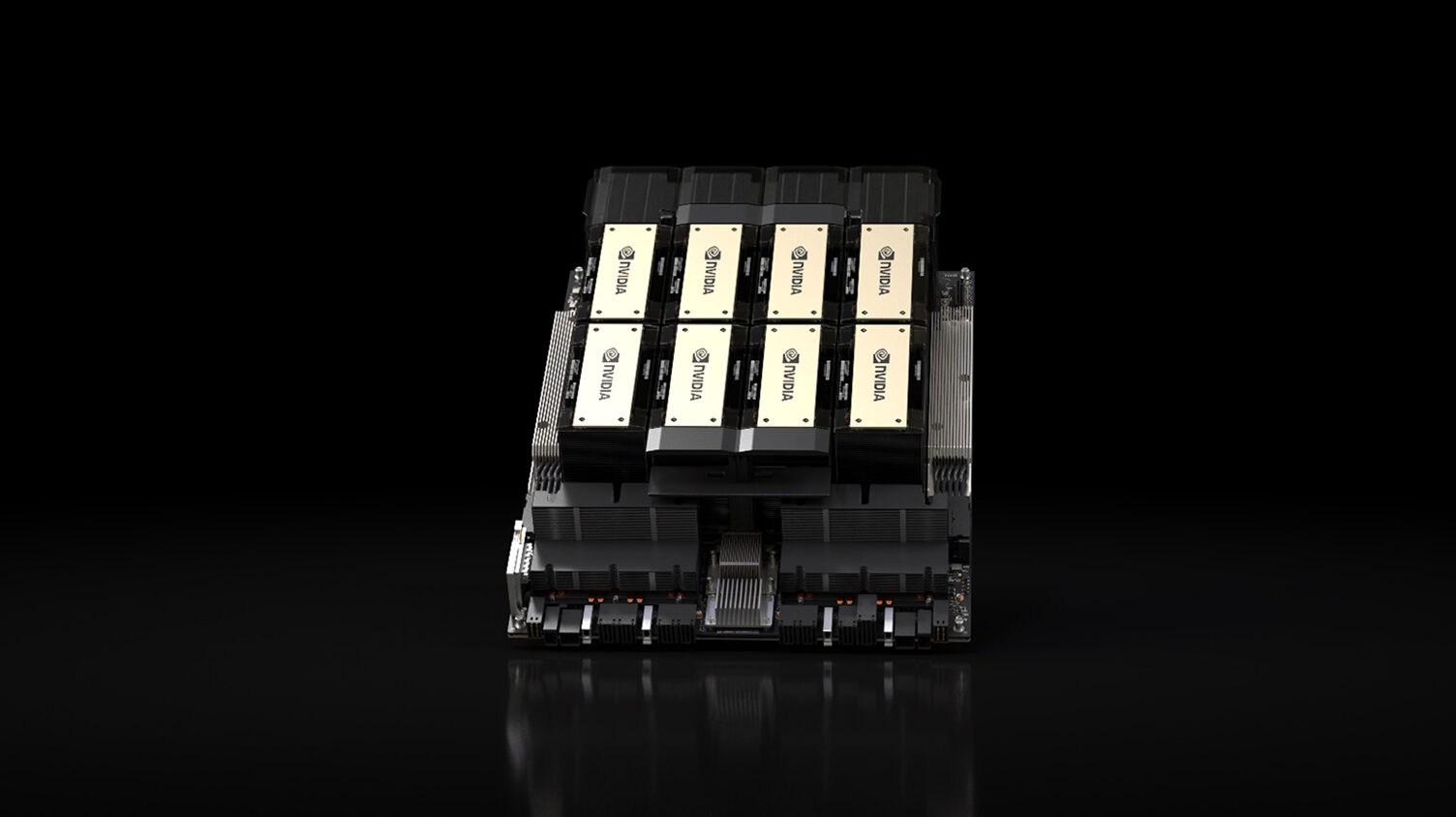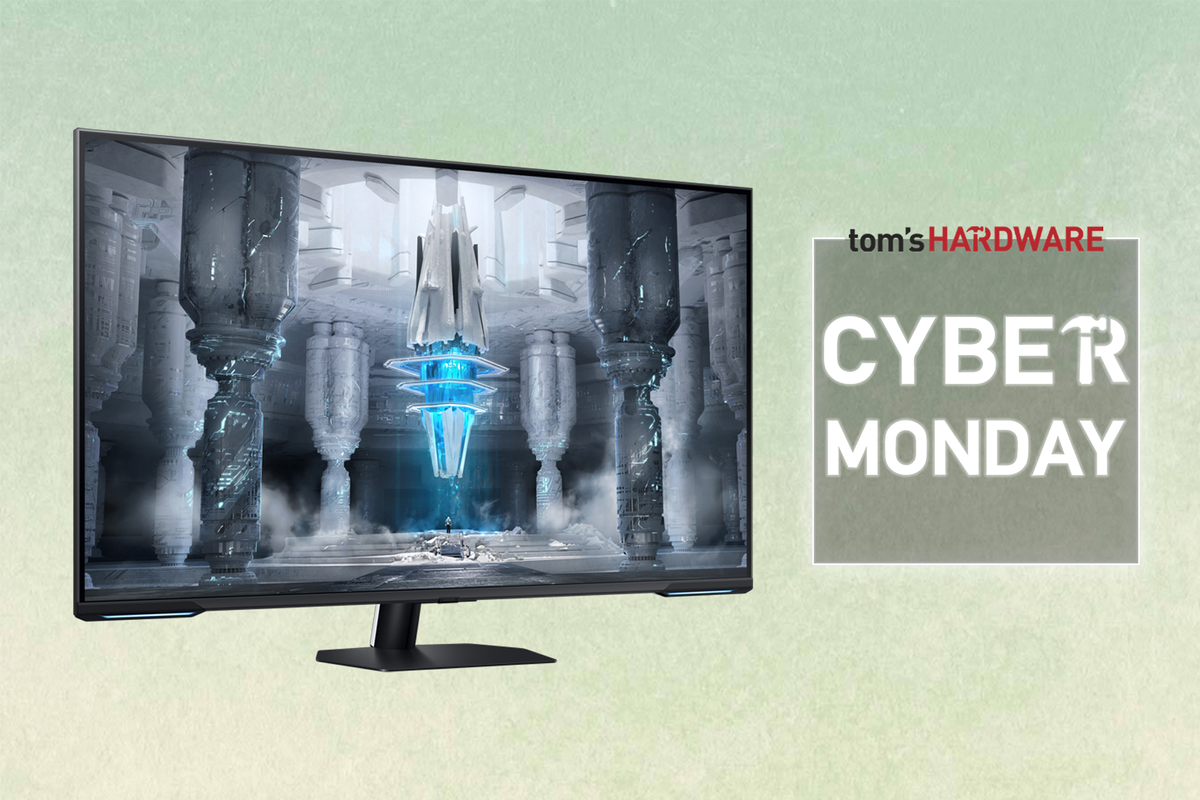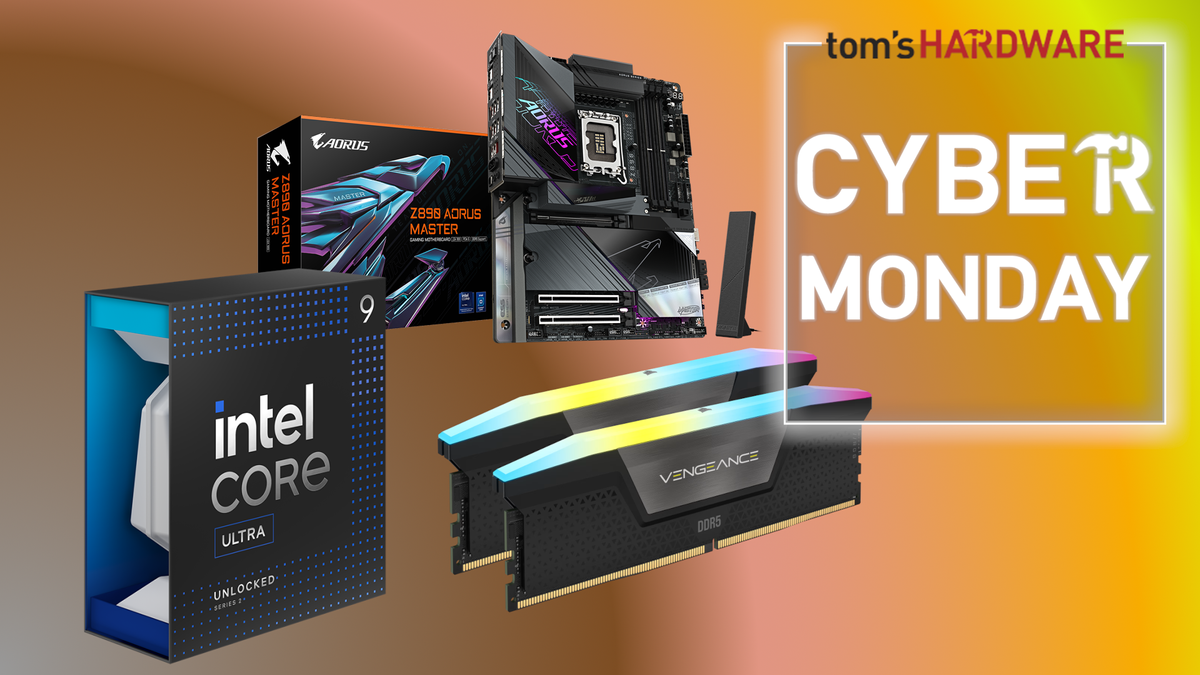Following the export ban of its H20 chips to China, Nvidia is reportedly designing a Blackwell-based alternative dubbed B30 with multi-GPU scaling capabilities, according to The Information. Multiple leaks have reported different names for this accelerator, shifting from the RTX Pro 6000D to B40, and now B30, possibly indicating different variants within the forthcoming BXX family.
The Information claims that Nvidia's future B30 solutions will support connecting multiple GPUs for scaling. It's important to note these accelerators are reportedly built using GDDR7 memory, employing GB20X silicon — the same chips that power consumer-grade RTX 50 GPUs. While many believe this 'multi-GPU scaling' capability refers to NVLink, Nvidia has excluded NVLink support from its consumer-grade GPU dies since the last generation.
The company introduced RTX Pro Blackwell servers at Computex, which employ up to eight RTX Pro 6000 GPUs, connected via ConnectX-8 SuperNICs with built-in PCIe 6.0 switches for GPU-to-GPU communication. This configuration also applies when connecting two DGX Spark superchips together, and that's likely what we'll see with the B30 as well. It is theoretically possible that Nvidia has modified existing GB202 chips, the ones you find on an RTX 5090, and enabled NVLink support.
When asked regarding the H20 ban, Jensen explicitly stated that Nvidia would not create further alternatives based on Hopper, indicating a shift to the Blackwell architecture for future China-bound chips. The U.S. government specifically targeted the H20's memory bandwidth and interconnect bandwidth, deeming it too high for unrestricted export. The rationale was that these AI accelerators can be used to build supercomputers in China for military applications.
Nvidia has long been engaged in a regulatory whack-a-mole with the U.S. government, concerning the export of its high-performance AI accelerators to China. These export control policies have also impacted competitors, such as AMD, which recently reported potential losses of up to $800 million following the ban on its MI308 chips.
Citing these policies as "a failure", Jensen Huang highlighted how the U.S. risks losing its competitive edge if Chinese rivals like Huawei are forced to innovate and design hardware that can compete against Nvidia, and possibly even define future global standards.
Follow Tom's Hardware on Google News to get our up-to-date news, analysis, and reviews in your feeds. Make sure to click the Follow button.

 6 months ago
337
6 months ago
337








 English (US) ·
English (US) ·